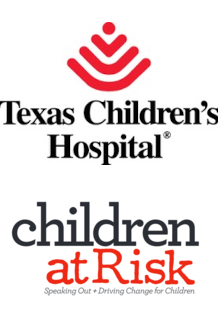Abstract
This exploratory study used semi-structured focus groups to examine: 1) where and from whom fathers obtain information about parenting; 2) the types of parenting services men are aware of, and their attitudes about participating in such services; and 3) fathers’ perceived norms about the acceptability and utility of various parenting practices. Low-income men (N = 17) were recruited from a human services agency in Detroit, Michigan. Four major themes emerged. First was the need for male-focused community resources for fathers. Second was that men were aware of and used positive disciplinary strategies. Third was emphasis on fathers’ positive and effective communication, with male children in particular. Finally, men suggested that constructive and concrete activities, such as engaging with children in activities or mentorship programs with other adult men in the community, were preferable to traditional parenting class such as those offered through Child Protective Services.
Key Take Away Points
- Focus group participants emphasized the need for male-focused community resources for fathers.
- Focus group participants indicated that constructive and concrete activities, such as engaging with children in activities or mentorship programs with other adult men in the community, were preferable to traditional parenting class such as those offered through Child Protective Services.
- Focus group participants were aware of positive parenting strategies and emphasized the importance of communicating positively with children, but also need additional parenting education regarding the negative consequences of behaviors such as spanking.
Author Biography
Shawna J. Lee, PhD, MSW, MPP, is an assistant professor at the School of Social Work and faculty affiliate at the Merrill-Palmer Skillman Institute for Child and Family Development at Wayne State University in Detroit, Michigan. She has a PhD in psychology and social work from the University of Michigan. Dr. Lee's research, which has been funded by the Centers for Disease Control and Prevention, examines paternal risk factors for child maltreatment and intervention to increase father involvement in parent training. Anna Yelick, LLMSW, received a MSW from Wayne State University in 2011 and is a Patient Service Coordinator at a non-profit organization. Anna has spent time in her professional and educational careers working on research projects in the human services field. Her recent project explored how fathers perceive their role in parenting and where they gather information on parenting. Kimberly Brisebois, MSW, is a PhD Candidate in the School of Social Work at Wayne State University and supervises the high risk infant team at the Windsor-Essex Children’s Aid Society. She leads specialized training for social workers involved with high-risk infants. She is currently involved in a new provincial committee aimed at admission prevention in child welfare. Ms. Brisebois’ research interests include the examination of the Ontario child welfare transformation agenda and subsequent policy changes, including children’s permanency in foster care, kinship care, and the utilization of social supports. Her dissertation work examines caseworker attitudes on kinship caregivers, and she is currently validating a scale to reliably measure this concept. Kelvin L. Banks, MA, LBSW, received a BA in criminal justice from Michigan State University in 1999 and is a social work master’s degree student at Wayne State University. He is a licensed social worker and is employed as a clinical probation officer at the Third Judicial Circuit Court in Detroit, Michigan. He is the proud father of six daughters, and his interest in promoting positive fatherhood extends into his role as an active member of the Brotherhood Ministry at his church.
Recommended Citation
Lee, Shawna J.; Yelick, Anna; Brisebois, Kimberly; and Banks, Kelvin L.
(2011)
"Low-Income Fathers’ Barriers to Participation in Family and Parenting Programs,"
Journal of Family Strengths: Vol. 11:
Iss.
1, Article 12.
DOI: https://doi.org/10.58464/2168-670X.1007
Available at:
https://digitalcommons.library.tmc.edu/jfs/vol11/iss1/12
Responses to this Article:
Jean Ann Summers, Commentary on "A Needs Assessment Examining Low-Income Fathers’ Barriers to Participation in Parenting Programs" (November 2011)


